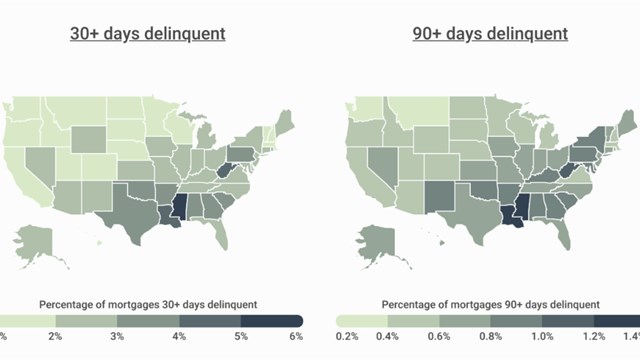Sheila Lokitz came to New York 16 years ago with a career change in mind. Moving from Los Angeles to work in the garment industry, she knew that New York was different from other places and she wanted to be a part of it. As much as anything else she noticed the buildings - and not just because a lot of them are so big that they're impossible to overlook.
"Most of the architecture in L.A., if it gets old, they tear it down," Lokitz says. "When we came to New York, I was so fascinated at all the different types of buildings - brownstones and lofts and pre-war and post-war - that I became very interested in them. I stayed in the garment industry for [a little while longer] and I decided it was time to make a change. [Real estate] seemed like a natural progression for me because it kept me in something I knew very well - sales - but allowed me to sell something different."
That's how Lokitz, a senior vice president with the Corcoran Group ended up being a real estate broker - and it's a decision she's certainly satisfied with.
Along with getting a good job and raising a family, owning your own home is part of the American dream. And that dream is rarely achieved without the help of a real estate broker.
Brokers are like walking encyclopedias; they know what apartments are out there and which ones fit their clients' needs. They know the neighborhoods, buildings and school districts, whether the neighborhood is bustling or quiet, and how motivated a given seller is. After the sale, a good broker can also act as something of a concierge, helping new owners connect with all sorts of services and organizations in their new neighborhood to make the transition smooth and trouble-free.
People People
What makes someone want to devote their lives to helping people find homes? People are drawn to the industry by things like flexibility in hours, the freedom that comes with working independently, and of course the potential for hefty commissions on big sales, but also the opportunity to work with people and help them through an important and often difficult process.
Like any other group of professionals, different brokers have different approaches to their jobs, but all agree on one fundamental point: if you're not a people person, it isn't a career for you.
"Ultimately, you need to be able to listen to what people are saying and what they are not saying and be able to interpret what they want," says Rebecca May, executive director of Caran Properties Realty.
Realtors need to be friendly, informative and reassuring towards their customers. Buying a home is filled with highs and lows and very often big dreams that aren't going to be completely fulfilled.
"One belief we have when dealing with clients is not to tell a client what is right for them, but to give them the education about the market and about what's out there so that they can make the most informed decision and the right decision for them," May says. "It's not an agent's or a broker's role to say, "˜Yes, this is the right apartment for you' unless you have a client who's obviously looking for you to do that. But you need to lead your client through the process so that they can make the decision - and we empower them to do that."
ðYou have to be someone who likes people and has a world of patience, because you're dealing with the biggest purchase anybody is going to make in their lifetime," says Lokitz. "And you have to understand that they have wants and desires."
In New York City, meeting all of one's desires can be difficult, if not downright impossible. People need to compromise, and that's when brokers become educators.
"I always say, "˜You'd better make a list of the most important things - number one through number 10 - and you're not likely to get all 10,'" Lokitz says. "So you have to realize, "˜Well one and two are really important needs for me - I need a lot of light, so I can't be in the back of a building.' If that's the most important issue, then I won't show you the back apartment, but if light's not that important but you do want the charm of a pre-war building, then that should be number one."
"I think once they've gone out with you one time or two times, at that point they start to understand the market and they do get a perspective of what's the most important thing for them."
Resiliency and Independence
The ability to overcome obstacles is also important in the job. "We have to be resilient," says Diane O'Connor of Coach Realtors on Long Island. "Through no fault of our own, through no lack of skill, we very often fail. You need to be resilient so that when things fall apart you can move on to the next sale instead of crashing and burning over what you couldn't fix."
It's not just seeing a potential purchase fail to happen that brokers need to shrug off. Sometimes, they devote a lot of time and effort to a client only to see them eventually go in a different direction.
"Often people will be looking with you for months and months, then come across an open house and buy it and you're out of it completely," O'Connor says. "They can be happy with you, but they want what they want."
Since a boss or manager is unlikely to follow someone around all day while they look at properties, realtors also need to be able to work independently.
"You need to be able to function on your own," says May. "It's a wonderful life and a very different kind of life, but it can provide you the kind of flexibility and hours that you want."
"It's a business for self-starters, people who don't need direction," says O'Connor. "The most successful people are willing to step out of the box, interacting with people and thinking differently and taking chances."
New York State of Mind
The city is a special place, and according to brokers who work here, being a broker here is a much different job than in other places.
"In most other places, when you own a home outside the city, you spend a lot of time in that home," Lokitz says.
"When you live in the city, so much of your life is spent out - at museums, theatre, street fairs - there's so much going on in this city that I don't think the interior space, the size of it, is as important as when you live in the suburbs. You also learn how to become creative with your space. It's amazing what you can do in New York to create storage inside an apartment."
For Lokitz, the job also helped her learn more about the city after she moved here. "You spend your life walking around the city and learning the buildings and the neighborhoods," she says.
"It's a little more sophisticated," May says. "There's no place like it, and it's a different field than if you go into the suburbs or New Jersey. To start, you're dealing with a very small amount of space for very large sums of money. You go outside New York City, spend $300,000, and you have a house. Here, you'd be getting a large studio or a one-bedroom if you're extremely lucky, so it's a whole different mindset."
Working in Today's Market
Low interest rates created a home-buying frenzy in the city that is still going on today. Some brokers say things are starting to calm down but Lokitz, for one, says she's still seeing plenty of properties sell at asking prices, or even above asking prices.
¤his kind of market also affects the day-to-day activities of the job to some degree. Lokitz says a lot of her time now is spent looking for properties for people.
"The inventory is low in the city and there are a lot of people out there looking to buy so that a lot of my time is spent looking and searching either for new properties or what my customers are looking for."
In this kind of climate, she also has to make sure people move quickly when an opportunity arises.
"You have to get them to be very responsive so that if something comes up that meets what they're looking for, you have to get right out there and hit the road and look at it or it will be gone by the end of the day."
Many brokers own homes of their own and are still able to see the process through the eyes of the buyer. While they may not get emotionally attached, brokers tend to like their clients and seeing them achieve their dream of home ownership is one of the more rewarding aspects of the job.
"That sometimes gets lost with people," May says. "You're helping people make what is probably the biggest financial investment that they will ever make. Not only on a monetary side, but emotionally as well. You have to help them through that and it is tremendously rewarding to see people six months later, so happy and settled They have a home and being a broker is really helping people put four walls around their dream."
Anthony Stoeckert is a freelance writer based in New Jersey.






Leave a Comment